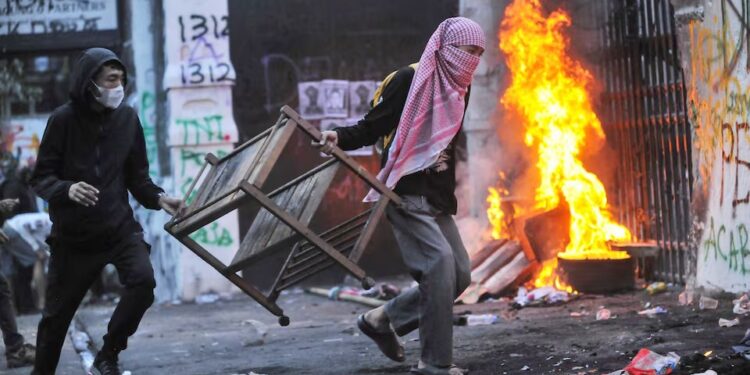Indonesian police fired tear gas near two university campuses amid nationwide protests, drawing strong criticism from student groups and human rights organisations over the use of force in academic settings.
Tear gas was deployed near the university grounds
On Monday evening, police deployed tear gas in the vicinity of the Islamic University of Bandung (UNISBA) and Pasundan University, located in Bandung, West Java. Authorities said they aimed to disperse non-student protesters who had sought refuge within campus premises, with traffic reportedly blocked and campus areas being used to shelter demonstrators.
Students accuse police of brutal tactics
Student representatives at UNISBA described the police actions as a “brutal attack”, saying the tear gas triggered breathing difficulties among students and unreasonably disrupted the academic environment. UNISBA’s dean, Harits Nu’man, defended the police, noting that they did not enter the campus and that the area was providing medical assistance to those in need.
Nationwide unrest as backdrop for campus clashes
The incident in Bandung occurred amid intensifying nationwide protests, initially sparked in Jakarta by public outrage over lavish housing allowances awarded to lawmakers—nearly ten times the city’s minimum wage. The situation escalated following the death of a motorcycle taxi driver struck by a police armoured vehicle, causing widespread unrest. At least eight people have died, and many others were injured. President Prabowo Subianto has vowed to take firm action against violent escalation.
Rights groups condemn heavy-handed measures
Human Rights Watch condemned the security response as irresponsible, saying authorities treated protests as acts of treason or terrorism. The rights group is calling for investigations into the use of excessive force. At the same time, the Lokataru Foundation reported that its director, Delpedro Marhaen, had been arrested by police, further fuelling concerns about suppression of dissent.
Implications for democratic freedoms
The use of tear gas near universities highlights rising tensions between state security forces and emerging pro-democracy movements—particularly those led by students, who historically played a central role in ending authoritarian rule in Indonesia. The crackdown marks a critical test of the country’s democratic institutions, raising concerns about freedom of expression, civic rights, and the right to peaceful assembly.
REFH – Newshub, 2 September 2025




Recent Comments